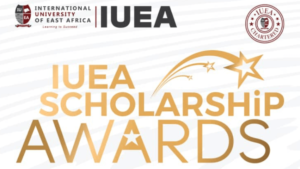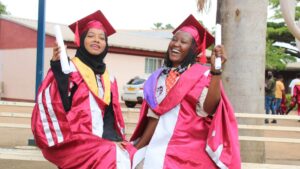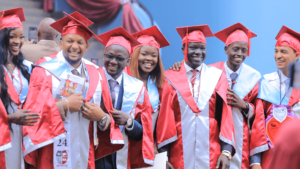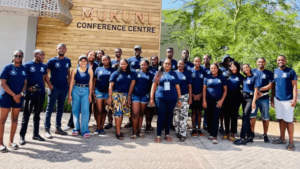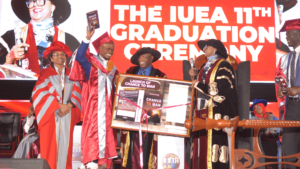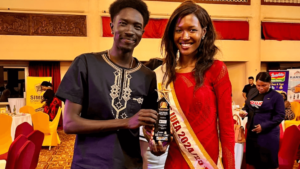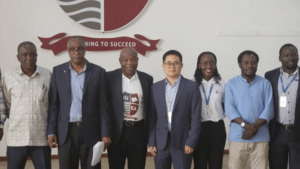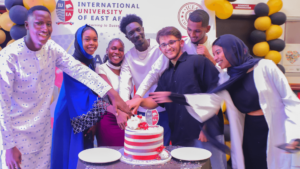Reach a Hand Uganda (RAHU), in partnership with the Aga Khan Foundation and the European Union came up with a five-month project to support vulnerable young women and girls, especially those that got pregnant and dropped out of school during the COVID-19 pandemic.
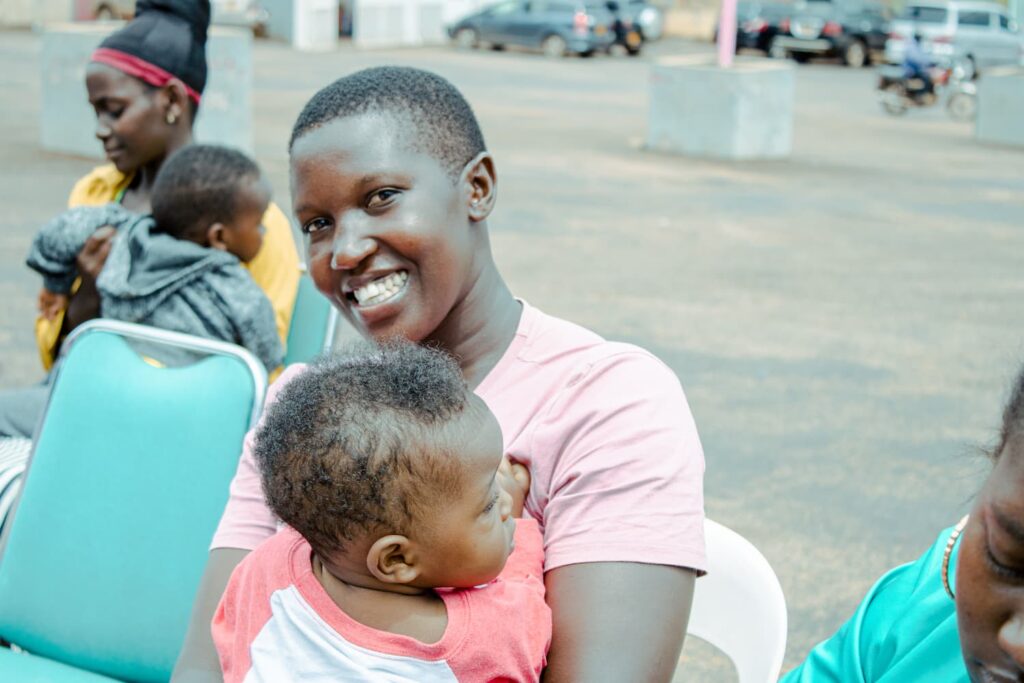
The project was officially launched last Friday, May 6, 2022, according to a press release from Reach a Hand Uganda. One thousand vulnerable young mothers in Kampala and Arua districts were registered to benefit from this project.
A team from Reach a Hand Uganda and the International University of East Africa (IUEA) executed the two-day distribution phase of the project, which lasted from May 11th to May 12th, 2022, at IUEA. This phase targeted the Makindye division.
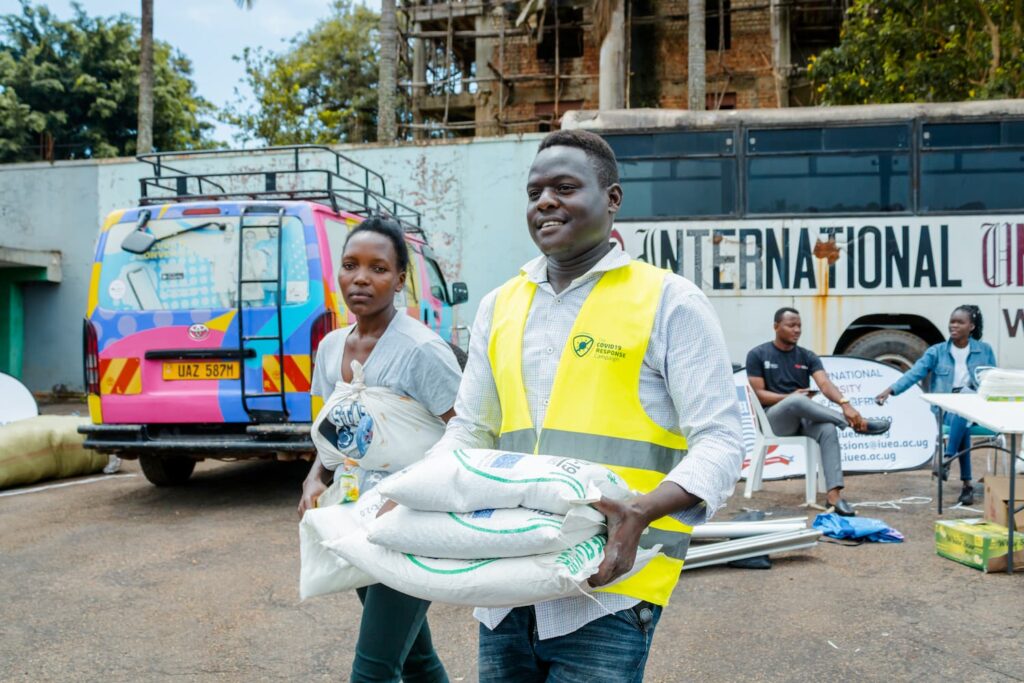
Mr Obua Aloncious, Reach a Hand staff, told us that the project aims to assist vulnerable women aged 12 to 24 years old to regain their footing after the wrath of the COVID-19 pandemic.
“As RAHU, we believe in empowering young people to make informed decisions that affect their lives and reach out a hand to vulnerable young people. We aim to empower them to reach their full potential.”
– Mr Obua said during the distribution exercise.
In addition, he said,
“The young women that we have reached out to are those who are pregnant or those who have recently given birth but are not getting much support from their families.”
The team gifted 226 young mothers from the Makindye division with relief hygiene kits (bars of soap), food packages (a bag of rice, posho, and beans), a mosquito net, and a “mama kit” for the pregnant women, the youngest being 15 years old.

Namakula Vivian, a 24-year-old mother and her 8-month old baby was glad to be one of the beneficiaries of this project.
Namakula laments that after failing to make it to university due to a lack of funds, she pursued a short course in photography and landed an excellent job in town. However, when COVID-19 hit the world, she, unfortunately, became pregnant, lost her job, and her family abandoned her.

“I am happy to be a part of this relief project. I didn’t even have a net. This net will at least save us from mosquitoes. Soap is also very expensive these days, and my husband is currently jobless; I thank Reach a Hand Uganda for thinking about us.”
– Namakula narrates.
Mr Ssali Gerald, one of IUEA’s marketing staff at the distribution exercise, shared that the university has also done its best to support disadvantaged and vulnerable women by providing scholarships and employment opportunities. He revealed that one of the recent beneficiaries of the scholarship is Namutebi Ruth Elizabeth, a second-year architecture student who is living with HIV.
Ssali added that more than 80% of IUEA housekeeping staff are from the neighbouring villages of Kansanga, Nabutiti, and Kitalanga.
“Over 80% of our housekeeping staff are young women and men from our neighbourhood. Some of them are young mothers trying to earn a living in the city. IUEA is glad to support them.”
– Mr Ssali reveals.

Apart from scholarships and employment, we have also witnessed several supportive projects from IUEA, like the ‘Pad Every Girl’ project by Msichana Uganda.
Last year the IUEA guild council also partnered with Reach a Hand Uganda to run a sexual reproductive health campaign whereby they distributed condoms and pads to the neighbouring community.
By: IUEA Connect



